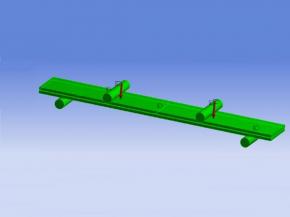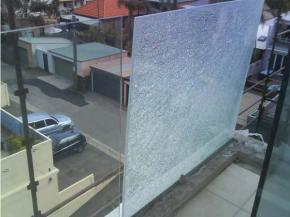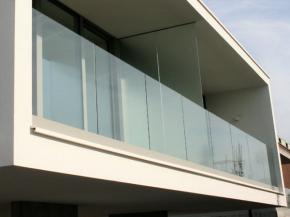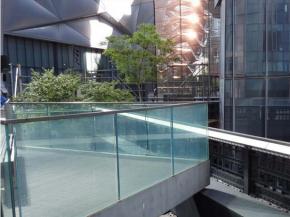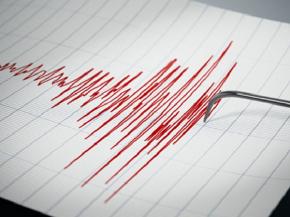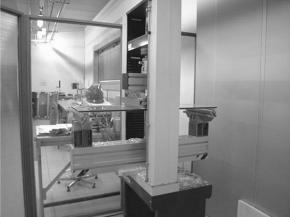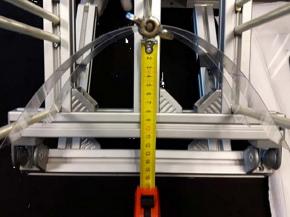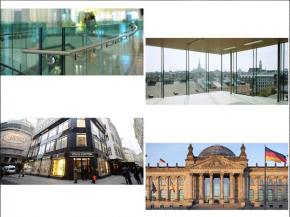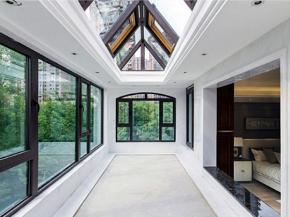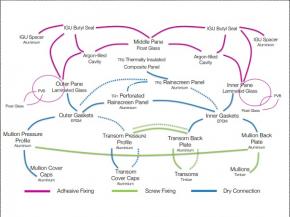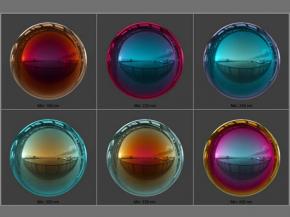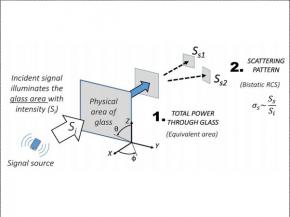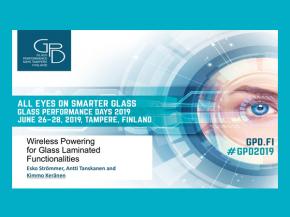Latest articles
| The “One Single Model” approach rises as the best tool to manage complex buildings through the different engineering branches.
| We have seen rapid expansion in the last decade of laminated glass design using modern analytical and computational methods.
| Time-temperature superposition principle is widely used to generate interlayer modulus properties in the form of mastercurves for use in glass design.
| Historically, monolithic tempered glass has been primarily used in North America, but with the recent changes to the International Building Code (IBC 2015), laminates with heat strengthened or tempered glass are now required.
| This paper presents an evaluation of the use of annealed laminated glass incorporating the stiffer PVB interlayers.
| Cantilevered laminated glass balustrades supported by bearing in continuous base shoes are among the most ordinary applications of structural glass.
| This case study describes the façade performance of the 2nd tallest building in China, the Ping An International Finance Center (Ping An IFC), located in the city of Shenzhen.
| In this paper the mechanical and application properties of Sikaflex®-268, a high performance polyurethane adhesive are presented and compared to Sikasil® SG-500, a typical silicone adhesive used for structural glazing applications in facades.
| Decorative glass is limitless in design, colors, patterns, textures, and offers aesthetic brilliance in countless interior applications.
| The Surface Compression Stress (SC) data, collected by Stazione Sperimentale del Vetro, were analysed to compare the measurements carried out by Scalp-05 (Scattered Light Polariscope) and Laser Gasp (Strainoptics’ GASP® Polarimeter).
| This presentation offers a new perspective on limit device design and specifications especially due to construction phase and post-occupancy habits in urban environments.
| The structural sealant glazing (SSG) system was adopted in numerous skyscrapers glass facades since the mid 1980’s in Japan.
| Silicone sealants have been applied for more than 40 years to structurally bond glass onto steel or aluminium frames. One of the reasons is the unique resistance to weathering in normal assembly situations.
| Thin glass is the product of choice for electronic device displays. This glass is commonly expensive aluminosilicate glass whose properties are significantly enhanced when subjected to chemical tempering.
| Increasing demands on security in an uncertain world have to be considered additionally by the building industry. Nowadays, largesized glazing in the building envelope cannot disregard safety requirements.
| Since A.Zoller has proposed the idea of vacuum glass in 1913, vacuum glass technology become more and more mature from the last 100 years.
| This paper was first presented at GPD 2019 by Rebecca Hartwell and Dr. Mauro Overend from University of Cambridge, UK.
| This paper was first presented at GPD 2019 by Nebojsa Jakica, Mikkel Kragh and Grégoire Besse.
| In this paper, different glass-based solutions to solve indoor connectivity problems are compared through simulations and measurements, and the implications of differences between technologies are explained.
| This paper introduces a safe, high efficiency, small size wireless power transfer (WPT) system with extremely thin power receiver capable of supplying up to 30W electric DC power for lighting, display, sensing and communication functionalities…



